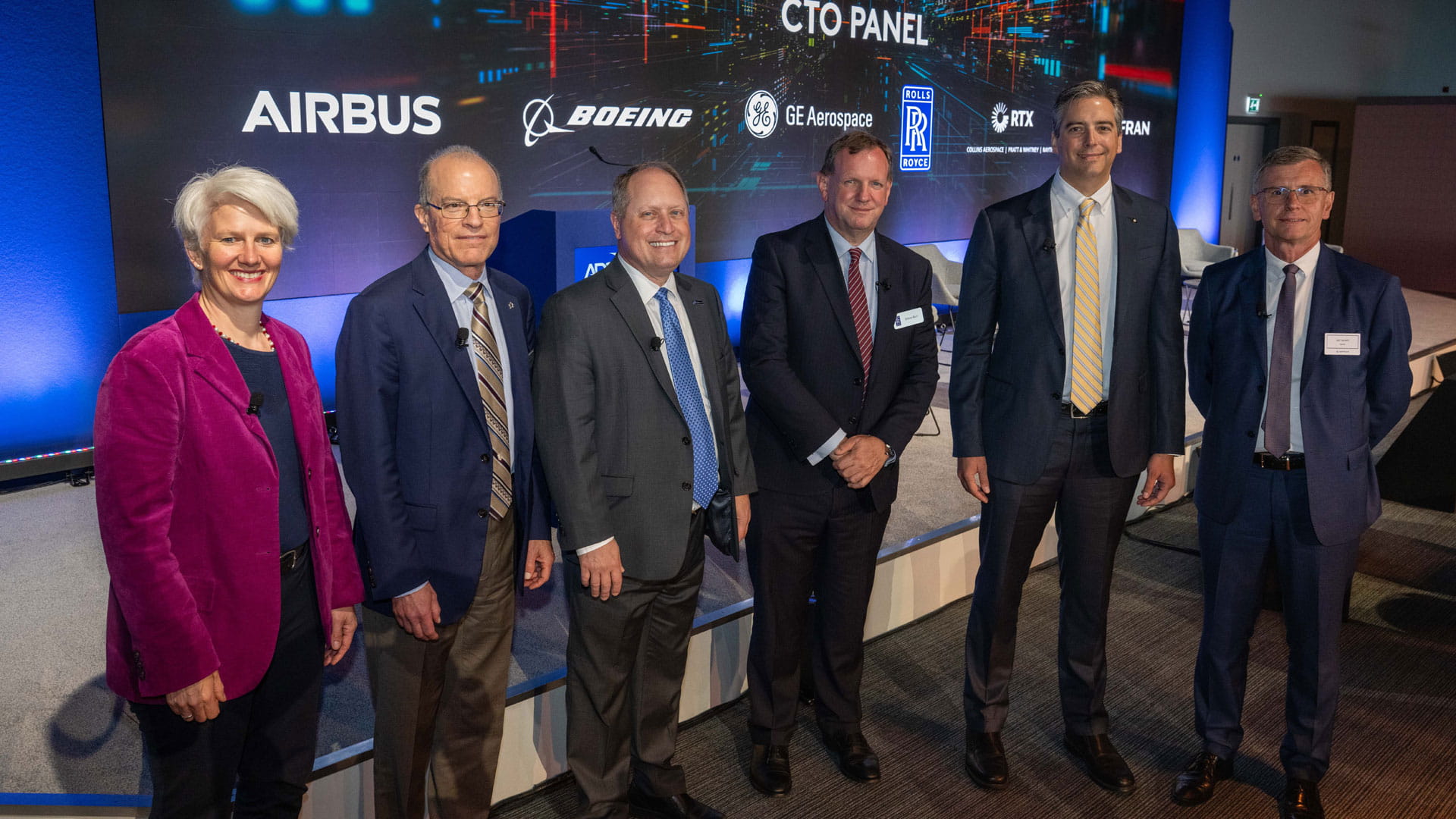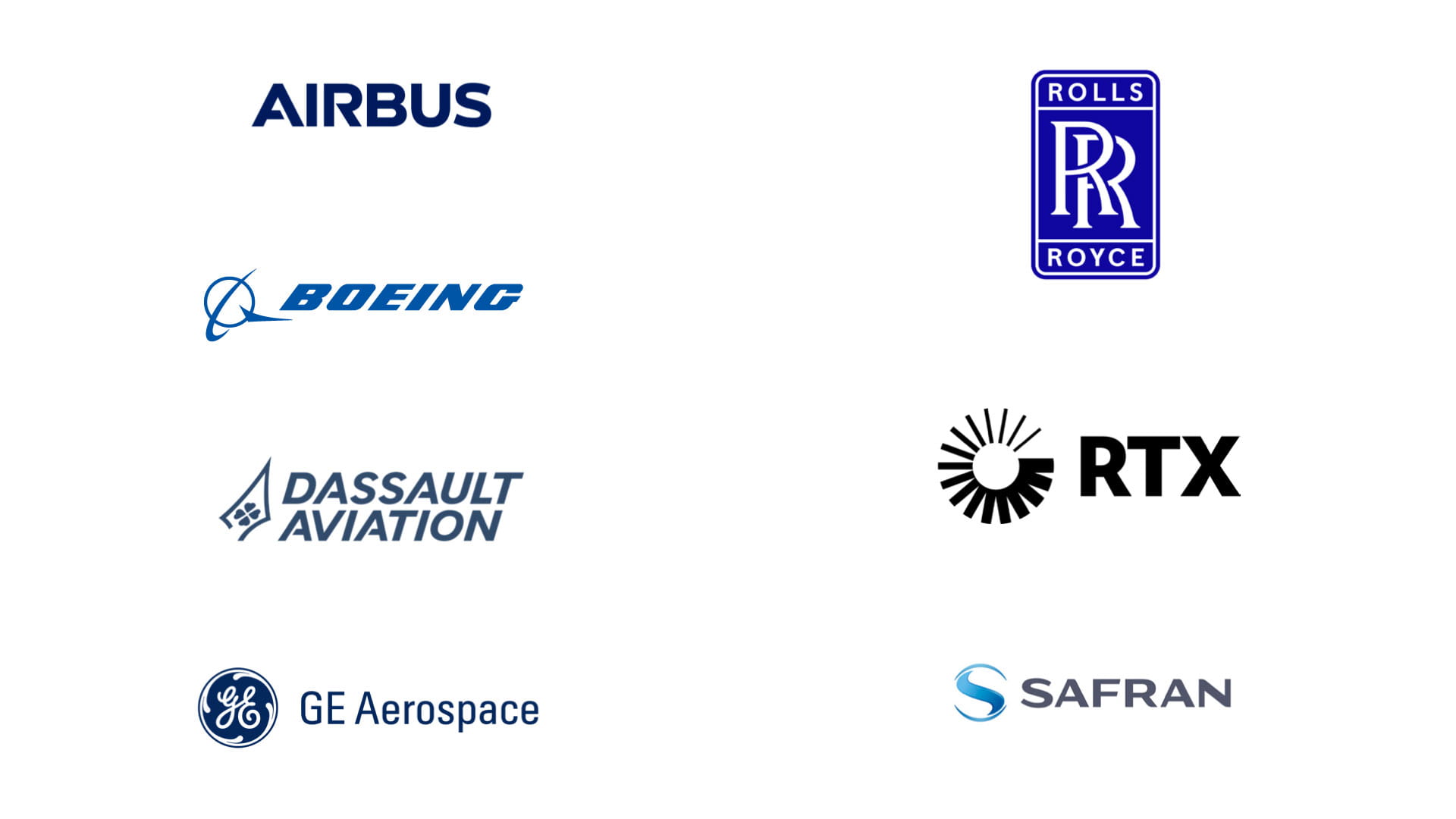
Sabine Klauke
Chief Technology Officer
Airbus

As Chief Technology Officers representing organizations across the industry, we fully support the civil aviation industry’s commitment to achieve net zero CO2 emissions by 2050. At the Paris 2023 Air Show, we highlighted the importance of the production, distribution, and uptake of qualified Sustainable Aviation Fuels (SAF), advanced aircraft and propulsion technologies, and improved aircraft operations for achieving net zero CO2 emissions.
To address the full climate impact of aviation, the sector is also accelerating efforts critical to understanding and reducing aviation’s non-CO2 effects including from nitrogen oxides (NOx), sulfur, aerosols, soot and contrails. In collaboration with research institutions, universities and other key stakeholders, our industry is actively working on multiple large-scale projects and research programs aiming at improving the understanding of non-CO2 emissions and their impact on the climate, which could enable mitigation solutions from fuels, engine technology and flight operations. Efforts such as FAA-ASCENT and CLEEN, SESAR projects such as CICONIA, Airbus led ECLIF3 and VOLCAN, and the Boeing ecoDemonstrator Explorer projects include significant research and flight test campaigns across both Europe and North America.
A key part of non-CO2 emissions from aviation, persistent contrails are estimated to have a warming climate impact. Several scientific studies1 have sought to quantify their climate impact, but estimates are highly uncertain based on limited understanding of the physical and chemical properties and mechanisms, as well as atmospheric conditions, that influence contrail formation and evolution. Similarly, NOx emissions and their secondary reactions depend on engine design, operating conditions, and atmospheric conditions. Research and collection of data is essential to accurately quantifying the interactions and impacts of non-CO2 emissions.
We jointly call for increased research funding to develop the science needed to underpin technology choices, operational changes and policy decisions. We will continue to engage academia, the global climate and weather modeling community, government research organizations and industry partners to advance seven priorities for research:
Signed,

Sabine Klauke
Chief Technology Officer
Airbus

Todd Citron
Chief Technology Officer
The Boeing Company

Gérard Leflour
Chief Technology Officer
Dassault Aviation

Chris Lorence
Chief Engineer
GE Aerospace

Simon Burr
Group Director of Engineering, Technology and Safety
Rolls-Royce

Juan M. de Bedout
Chief Technology Officer
RTX

Eric Dalbiès
EVP, Strategy and Chief Technology Officer
Safran

(1) Myhre et al. (2009); Chen et al. (2012); Chen and Gettelman (2013); Bock and Burkhardt (2016); Kaercher (2018); Gettelman et al.; (2021); Lee et al. (2021); De Leon and Lee (2023); Lee et al. (2023); Teoh et al. (2023); Maerkl et al. (2024)